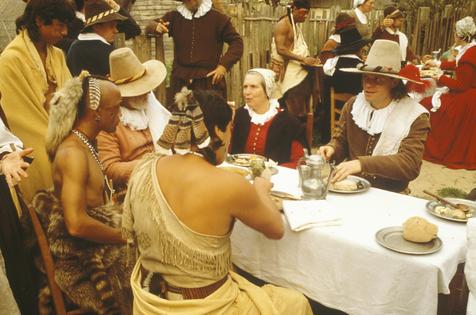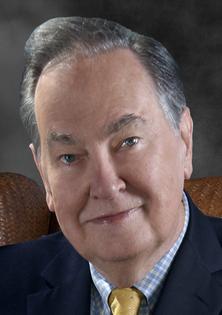The Evolution of Thanksgiving
The annual American holiday called Thanksgiving formally began with a 1863 proclamation from Abraham Lincoln declaring the last Thursday in November a day of “thanksgiving and praise to our beneficent Father who dwelleth in the heavens,” as well as “humble penitence for our national perverseness and disobedience.”
The thought behind Thanksgiving is outward toward God and his blessings and not inward, which suggests gratitude to no one in particular for whatever positives might have occurred in one’s life. In the more secular view these positives are not blessings, but are to be chalked up to luck, or “good fortune.” May “The Force” be with you.
Most presidents after Lincoln generally followed the pattern of giving thanks to the Deity, even and especially during wars and economic downturns.
In 1939, in the midst of The Great Depression and a looming World War II, President Franklin D. Roosevelt was still able to proclaim: “Let us, on the day set aside for this purpose, give thanks to the Ruler of the Universe for the strength which He has vouchsafed us to carry on our daily labors and for the hope that lives within us of the coming of a day when peace and the productive activities of peace shall reign on every continent.”
That optimistic sentiment was reinforced in the Vera Lynn song “The White Cliffs of Dover,” which contained this lyric:
“There'll be love and laughter
And peace ever after
Tomorrow
When the world is free”
If only.
Roosevelt also declared Thanksgiving to be on the fourth Thursday of the month in years when the calendar contained five Thursdays to allow more time for Christmas shopping which he thought would help boost the economy.
Even in this month when Thanksgiving comes naturally late on the calendar, advertisers have been declaring “Black Friday” sales beginning in October.
As noted by The American Presidency Project, beginning in the early 1940s, “the language of Thanksgiving Day Proclamations changed to emphasize American values and ideas, and to assert the event's direct link to the ‘first Thanksgiving’ of Plymouth Colony.”
Many myths have grown around Thanksgiving, The Mayflower, and other historical events. The Museum Gallery Archive reports: “Four hundred years ago, Thanksgiving was a religious event, and marked by fasting not feasting. Recent research suggests that the first Thanksgiving of this kind was celebrated by new English settlers at Berkeley, Virginia, in 1619. They were Puritans giving thanks for their safe arrival on the banks of the James River.”
Today, Thanksgiving is nearly a blur in the rush toward Christmas and the conspicuous consumption merchants promote to pad their bottom lines. It’s too bad because pausing to reflect amid the toxic political environment we have experienced this year – and are likely to continue to experience in at least the near future – is a way to cleanse us from the poison that has infected so many. It is also a way to turn our attention from things on Earth that must pass away to the One who is eternal and in control of all things.
After one of the most divisive presidential campaigns in modern history, dividing friends, family members and even members of some churches, this Thanksgiving offers an opportunity to put bitterness aside, attempt to heal wounds, and focus on what unites us more than our political divisions. Let that process begin with humility, forgiveness and confession to the One who ought to be the object of our gratitude.
Readers may email Cal Thomas at tcaeditors@tribpub.com. Look for Cal Thomas’ latest book “A Watchman in the Night: What I've Seen Over 50 Years Reporting on America" (HumanixBooks).
©2024 Tribune Content Agency, LLC.









































Comments